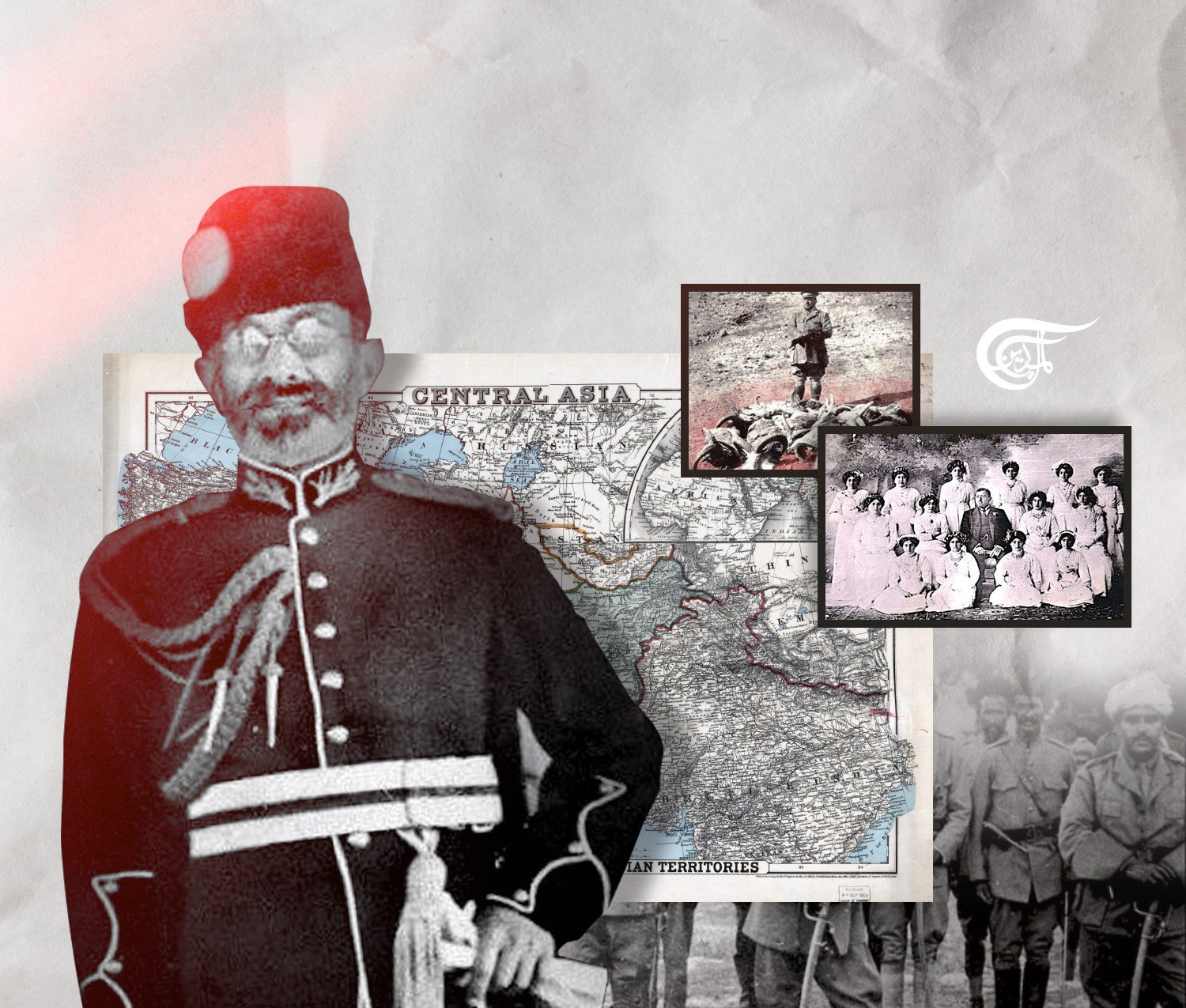Nader 'the Traitor', the sealing of Afghanistan's ugly fate – PART I
Prince Amanollah and General Mohammad Nader met one night in 1919 on the mountain "Sheerdarwâza" above the old city of Kabul. What exactly they discussed is not known, but Nader must have agreed to the conspiracy against Amir Habibollah... as became apparent as events unfolded.
-

Mohammad Nader and his siblings, though of Afghan heritage, were born and raised in Dehradun in British India as the British had expatriated his grandfather to Dehradun back in 1879
The meteoric rise of Mohammad Nader Khan – one of the shadiest figures in Afghan history...
W. Churchill, the old colonialist, had some clever maxims. One of them was:
"The longer you can look back, the farther you can look forward."
Mohammad Nader and his siblings, though of Afghan heritage, were born and raised in Dehradun in British India as the British had expatriated his grandfather to Dehradun back in 1879. Nader thus received a British upbringing and education and later joined the British colonial army where he was trained as an artillery officer – hence his fondness for cannons, which he was to eagerly employ for executions in Afghanistan.
Why his ancestors had been sent to India by the British and later back to Afghanistan, and how they lived in India has not been adequately researched and clarified. All that is known is that the family was bound together by inseparable ties during their years in India and that they were all extremely ambitious and determined. They arrived in Afghanistan under Amir Abdollrahman's final year of rule and settled in Kabul. Nader, in his early 20s, got a post as an officer in Abdollrahman's army and embarked on a meteoric career – while remaining exclusively in the Amir's court. Nevertheless, he had difficulties in dealing with his fellow courtiers, as well as with the general population.
-

Mohammad Nader, the General
In Afghanistan little was known about Nader and his family. They were fluent in the English language but spoke Persian (the official language of the country) and Pashto (the language of the Pashtun tribes) with an Indian accent, which subjected them to ridicule from the courtiers and the population. They were also unfamiliar with the customs of the court and the life of the people, and this only led them to isolate and shield themselves from others while focussing their aspirations solely on the court and the army. Nevertheless, Amir Abdollrahman, due to his latent devotion to the British, recognised the family's unusual aptitudes and facilitated their ascent within the military and state administration.
But this did not enable Nader and his brothers to gain the trust they sought, especially amongst those in the army and the state apparatus. The distrust was mutual and was to endure up to the end of Nader's life. Indeed, when Nader and his brothers later seized power, they enforced and defended it with extreme brutality. In addition to the traits of distrust, greed, and deviousness, Nader's contemporaries also attributed to them a ferocious vindictiveness.
As Nader and his kin increasingly focussed their lives on the court, they soon became indispensable to the "royal" family. Nader's father and uncles became permanent attendants to Amir Abdollrahman, and Nader and his five brothers became the personal bodyguards and permanent attendants to the young Prince Habibollah [not to be confused with the Tajik rebel Habibollah Kalakâni], who was the next heir to the throne.
When the tyrant Abdollrahman died in 1901, his son Habibollah assumed the throne and ruled until 1919. Initially concerned with the advancement and modernisation of Afghanistan, he made a few minor achievements in the areas of economy, culture, education, and urbanisation. But he gradually lost interest in these aims and began to devote himself ever more to the hedonistic life of the court. As his father had already brutally crushed and stifled any opposition in the land, thereby silencing much of the population and plunging the country into a state of apathy, Habibollah was left to pursue his favourite pastimes: hunting game and engaging in carnal pleasures. After his death, he was to leave behind a harem of nearly 300 women.
-

Amir Habibollah with his wild game
Abdollrahman once boasted to his son and crown prince: "Don't worry, son, I haven't left you a single head behind in the entire land to cause you any trouble..." This was not much of an assurance. Due to his intellectual limitations, Abdollrahman could not imagine that a people can be like a field of crops – where heads that are cut off simply grow back! So it was that a tentative resistance began to sprout amongst the younger generations during Habibollah's reign, and the calls for change and advancement became ever louder. A "National Secret Party" was founded, whose members were comprised of young students and several older liberal personalities. Another group sought support within the court and attempted to influence the Amir's immediate environment in a more diplomatic manner.
-

Amir Habibollah with some of his women
But the members of the "National Secret Party" were set on eliminating the Amir altogether. A student by the name of Abdollrahman Lodi acquired a pistol and aimed at Amir Habibollah as he was driving in a motorcade through the streets of downtown Kabul (1918). The shot missed its target, and Habibollah was left unscathed. Within a short time, the omnipresent intelligence service succeeded in tracking down and arresting the would-be assassin and all those possibly connected to him. Detained along with them were uninvolved persons (friends, relatives, other opposition members). Amir Habibollah, however, was not as brutal as his father and refrained from imposing harsh measures on the prisoners, such as torture or their execution. Lodi was in fact later released from prison by Amanollah, Habibollah's successor, and was even appointed mayor of Kabul.
In the meantime, the other resistance group pursuing diplomatic solutions sought the support of a member of the court – Amir Habibollah's third son: Prince Amanollah – who was not in agreement with his father's methods of governance. Deeply impressed by the advancements made in Europe and the developments under Mustafah Kemal Pasha in Turkey and Reza Khan Pahlavi in Persia, Amanollah hoped to achieve something similar in Afghanistan.
The group around Amanollah grew... At first, they employed peaceful means to convince the Amir of the necessity of these reforms and to persuade him to change his policies. But apart from writing and distributing leaflets, their actions went no further: the Amir paid no attention to these demands. Eventually, they, too, came to the conclusion that the Amir had to be removed, and a new government needed to be formed.
To implement this plan, Amanollah required the cooperation of General Nader, as he happened to be the chief of the Amir's bodyguards. Prince Amanollah and General Mohammad Nader met one night in 1919 on the "Sheerdarwâza" mountain above the old city of Kabul. What exactly they discussed with one another is not known, but Nader must have agreed to the conspiracy against Amir Habibollah, because this plan suited Nader's own ambitions, as it would later turn out. And so the successive events took their course.
On 21st February 1919, Amir Habibollah was shot dead on his hunting grounds in Jalalâbâd in a cloak-and-dagger operation. His eldest son, the crown prince Nassrollah was to be appointed Amir, but after a few days he was deposed by Amanollah following a second, peaceful coup, and Amanollah himself was appointed Amir. More on Amanollah's reign and that of his successor can be found here.

 Tariq Marzbaan
Tariq Marzbaan
 7 Min Read
7 Min Read











